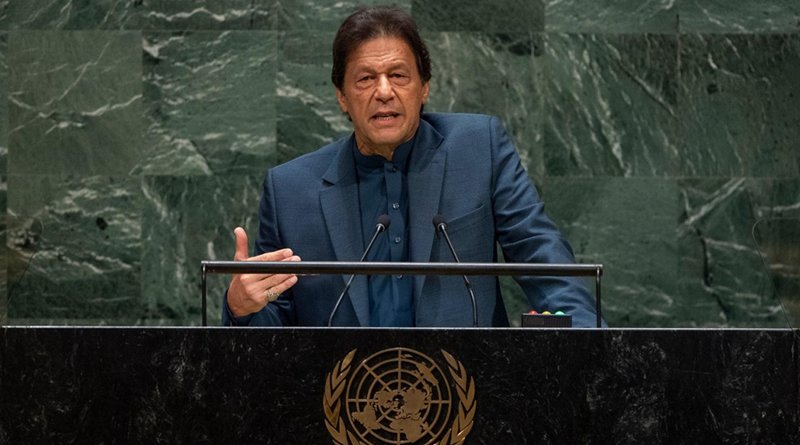UN Lectern Offers Leaders Chance To Set Agenda – OpEd
By Ray Hanania
The UN General Assembly held its 74th session last week and I left there with some new appreciation for the international organization’s members.
First, more than half of the 193 member nations’ heads of state, presidents and delegates who addressed the General Assembly managed to include powerful and moving tributes to the Palestinian people, showing that, despite the efforts of Israel and the US to erase it from the UN, Palestine remains one of the organization’s top priorities.
Speaker after speaker spoke emotionally about supporting the “just struggle” of the Palestinian people and reiterated their support for the two-state solution that Israel’s government and President Donald Trump seem determined to block.
Among all of the issues addressed at the UN, from climate change to health care, from fighting terrorism and violence to protecting the environment, Palestine ranked up there right at the top.
Of course, the Palestinian delegation, which is under constant siege, oppression and even bullying from the occupiers, Israel, failed to exploit that attention by offering little or no media outreach. The Palestinians went there to give a speech that enhanced their support but did little to educate the largely pro-Israel American public.
With nearly every news media organization covering the UN, meaning there were more than 1,500 journalists, writers and bloggers in attendance, you would think governments with important causes would set aside some of their time to meet with the news media to reinforce the important messages they delivered from the UN lectern.
Saudi Arabia and Jordan were the only two Middle East nations to offer some accessibility, issuing press releases that helped preserve the focus on what they feel is important. Media relations are as foreign to the Arab world as fresh water.
The UN lectern is one of the most prominent soapboxes in the world. It is the place from which voices can be heard around the world, and where opinions, visions and pleas influence major global issues.
Of all the speakers during this year’s session, the most powerful was Imran Khan, the prime minister of Pakistan, who probably learned the importance of communications, the media and public image from his days as a world-class cricket player.
Khan gave one of the most powerful defenses of Islam that I have ever heard. He did so, of course, as a setup for his later argument to rally the UN against what he termed as atrocities and abuses by neighboring India.
During his speech, Khan explained that Islamophobia is one of the greatest contributors to the violence and terrorism that comes from every nation, people and religion. He argued that, after Sept. 11, 2001, Islam was cast as a “radicalized” religion because of the anger and emotion of the West, and the failure of the Arab world to strategically confront this inaccurate stereotype.
Khan explained that many in the non-Muslim West have been conditioned by this failure to accurately portray Islam — a religion of peace — to see it as a source of violence, fear and terrorism, even though it is a fact that as much violence and terrorism comes from the West as comes from the Muslim world.
“Suicide attacks and Islam were equated. No one did research that, before 9/11, the majority of suicide attacks in the world were by the Tamil Tigers, who were Hindus. No one blamed Hinduism, and quite rightly. What does Hinduism have to do with what desperate people were doing in Sri Lanka?” Khan asked. “We’ve seen films about Japanese kamikaze pilots at the end of the Second World War doing suicide attacks. No one blamed the religion.”
Denouncing the inaccurate stereotypes of Islam, Khan added: “I always thought that, if I had this stage, I would explain this to the Western world… In the Western world, quite rightly, the Holocaust is treated with sensitivity because it gives the Jewish community pain. That’s all we ask. Do not use freedom of speech to cause us pain by insulting the Holy Prophet. That is all we want.”
Khan went on to explain that Muslims not only respect the reality of the Holocaust, but they are also offended when the Christian prophet Jesus Christ is vilified in the media.
Most of the mainstream media ignored the specifics of his near-hour-long speech — one of the assembly’s longest — and instead focused on the controversy when he warned of a “bloodbath” in Kashmir as a result of India’s suspension of the Muslim-majority region’s special constitutional status. Khan even alluded to the possibility of nuclear war if the conflict erupted and either Pakistan or India, which both have nuclear weapons, felt under threat.
Although the nuclear war reference was more of a ploy that didn’t work, Khan’s defense of Islam was powerful and his remarks should be listened to by every human being who believes in the sanctity of justice, the rule of law, and religious freedom.

